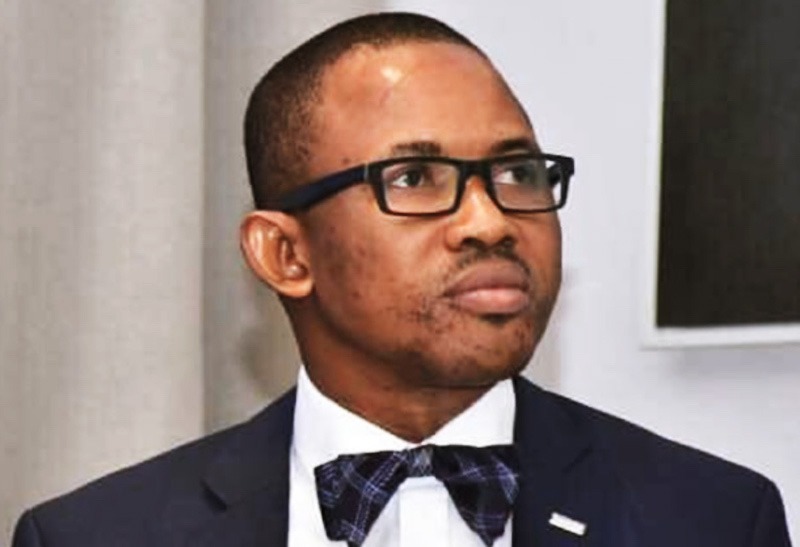
The recent strategic move by the Central Bank of Nigeria (CBN) to harness the economic potential of Nigeria’s diaspora, during an interactive session with groups of foreign investors at the ongoing IMF/World Bank Annual Meetings holding in Washington DC., to some analysts is a major push for economic growth and development.
Also, the combined team of the Nigeria Inter-Bank Settlement System (NIBSS), major Nigerian banking institutions, and International Money Transfer Operators (IMTOs), to engage with the Nigerian Diaspora community in Houston, Texas, United States of America at a forum titled: “Optimising Remittances to Nigeria: A Vision for the Future”, to financial experts, is yet another thrust to navigate the economic growth of Nigeria
Mr. Wale Edun, the Minister of Finance and Coordinating Minister of the Economy, and Governor of Central Bank of Nigeria (CBN), Mr. Olayemi Cardoso, in their remarks called on foreign investors to invest in the Nigerian economy, saying that with reforms initiated by the Federal Government, confidence had been gradually restored.
The CBN governor encouraged the investors, who were mostly investment bankers, asset managers, and investors from JP Morgan, Standard Chartered, among other global financial institutions to come and invest in the Nigerian economy insisting that the coast is clear for them to reap the benefits of their investment in Nigeria.
He said: “Confidence has fully returned to the market and there is also confidence by Nigerians in their currency. Clearly, a situation where interest rate has gone up, we expect that there would be more interest in local currency instruments”.
“Something else that is important in these whole adjustments in the Nigerian economy is the fact that Nigerians would be more inclined to produce locally because it is a lot cheaper for them to do so, rather than depend on imported goods.”
On harmonisation of rates, Cardoso said: “Concerning the harmonisation of rates, bear in mind that for those who are used to sending money to Nigeria, they no longer have to find other unorthodox methods of sending their monies home. I particularly refer to remittances from the diaspora. That is why we have had a major uptick in that level of inflow.
The CBN Governor, while responding to a question as to whether the Monetary Policy Committee (MPC) at its last meeting took cognisance of the latest fuel price increase, said: “The answer to that is, yes. We had to do so because we predicted that situations would get a little bit more sticky and to moderate the effects of that we decided to increase interest rate.”
Edun, in his response, noted that there is a commitment by the Federal Government to raise oil production to two million barrels a day, as part of efforts to boost revenue.
He recalled that: “In 2015 or so, we were at 2.3 million barrels a day. So, it’s a very reachable target, which the whole ecosystem, the government, and the oil sector, are committed to administering the process that has been improved and will allow speedier implementation of investments.
“The subsidy removal, the fact that the petrol subsidy and the related foreign exchange subsidy are removed means that you can expect, and we will see, a flow of funds into the government coffers. We know that there’s still a demand for foreign exchange.
“In terms of fiscal performance, where we met things was huge debt servicing, costing nearly 100 per cent of revenue and deficit of 6.5 per cent. We got it down so far in the first half of this year, and the debt service to around 60 per cent of revenue, which is still high, but we’re coping with it.”
“And by prioritisation, and in terms of the other aspects of fiscal policy, the budget deficit is down to around 4.4 per cent of GDP as of first half of 2024. The target for the year is four per cent, and we are still hopeful of achieving that.”
“It is the overall macroeconomic reset to stop the haemorrhaging and then build up the revenues and add investments. That is the overall strategy of getting Nigeria, once again on the path to rapid, sustained, and inclusive growth, which is the president’s strategy, his objective and his commitment.”
Edun specifically said: “In terms of Value Added Tax (VAT), the commitment of President Bola Tinubu is that while implementing necessary, but wide-ranging reforms, the poorest and the most vulnerable would be protected. In terms of VAT.”
The bills going through the National Assembly would raise VAT for luxury goods, while at the same time seek to exempt VAT for the essentials and what the poor and vulnerable can purchase. Those items would be singled out and exempted from VAT, while hitting VAT for luxury goods.”
Muhammad Sani Abdullahi, Deputy Governor, Economic Policy, CBN, in a presentation of the current state of economy to the investors at the commencement of the meeting, said the Tinubu administration hit the ground running last year with the removal of two key subsidies, which he stressed had held back the Nigerian economy for over 40 years.
Abdullahi stated that with the subsidy removal had resulted to improved revenue mobilisation.
“The fiscal and monetary policies are working hand in hand to deliver a stronger and more stable Nigeria in terms of the institutional reforms. There has been a lot of focus on restoring price stability, rebuilding confidence and regaining market credibility. The stoppage of quasi-fiscal activities for the CBN and its return to orthodox monetary policy has been a cornerstone of the leadership of the bank,” he said.
The CBN Deputy Governor also explained that the agreement between the Ministry of Finance and CBN regarding Ways and Means was critical to ensure price stability.
“On the fiscal side, there’s been a lot of work on fortifying the public finance buffers, addressing low domestic revenue mobilisation through various measures, including much stronger tax administration and improving corporate income taxes,” he said.
Abdullahi pointed out that the ongoing banking sector recapitalisation was aimed at strengthening the system.
He said: “The social safety net, which is one piece of work that is ongoing, and prioritising expenditure to ensure that we allocate as much funds for social protection and other priority spending that goes to take care of the vulnerable parts of our society, has been a priority.
“We are at the cusp of a structural transformation and we hope to see Nigeria emerge from an import-dependent economy to one that is export-driven. And there’s a lot of work that’s happening right now in terms of ensuring that we clean up our export processes.
“There’s a lot of work in other sectors, in agriculture, electricity, and we are really freeing the electricity markets to be able to reprice this market-based pricing and to ensure that we get investments within that. So there’s a lot of work also happening.”
Mr. Tanimu Yakubu, Director-General of Budget Office, said with the performance of the 2024 budget in terms of revenue, the country was doing well.
Yakubu stated, “In terms of revenue, we are doing a lot better. Budget performance was N13.1 trillion and actual performance was N12.6 trillion, which gave us a deficit of about N500 billion. So, the aggregate revenue target was missed by 3.6 per cent, so we are doing well.”
Cardoso, however, disclosed that NIBSS will launch a BVN platform for Nigerians in the diaspora by December. BVN is an 11-digit number that is unique to each individual, but the same across all banking institutions for the same individual.
Cardoso added that the platform would enable Nigerians in the diaspora to operate their local bank accounts, run their businesses and sort out Know-Your-Customer (KYC) issues with financial institutions from anywhere in the world.
He explained that the initiative was part of efforts to ensure that Nigerians, irrespective of their location anywhere in the world, could participate in the Nigerian economy.
Muhammad Sani Abdullahi, the Deputy Governor (Economic Policy), CBN, while speaking with Nigerian Diaspora community in Houston, Texas, United States of America at a forum, told the gathering of critical stakeholders in the remittance ecosystem that the aim was to engage with the Nigerian diaspora community on opportunities to enhance remittance flows and strengthen Nigeria’s financial sector.
Reiterating Governor Olayemi Cardoso’s commitment to double the volume of capital inflows and diaspora remittances to Nigeria, Abdullahi emphasised the Bank’s commitment to “strengthening macroeconomic fundamentals to create an enabling environment where the private sector can thrive and generate quality jobs for Nigerians.”
He said the event was part of a series of engagements the Bank would be participating in over the coming months. He noted that the CBN, in an era of bold reforms, is prioritising strategies to leverage diaspora remittances as a catalyst for inclusive economic growth, financial inclusion, and overall national development. Also speaking, the Deputy Governor (Financial System Stability) at the CBN, Mr. Philip Ikeazor reiterated the forum’s call to shift the perception of remittances from a source of consumption to a tool for investment. He emphasised that remittances could play a transformative role in Nigeria’s development if channelled effectively into productive investments.
Dr. Oliver Alawuba, the Group Managing Director/CEO of United Bank for Africa (UBA) and Chairman of the Body of Banks’ CEOs in Nigeria, in his remarks, stressed the need for collaboration among banks, regulators, fintechs, and the broader ecosystem, noting that no single institution can unlock the total value of remittances.
Nneka Onyeali-Ikpe, CEO of Fidelity Bank, addressed the challenges diaspora members face in sending money home efficiently, highlighting high costs and limited access to financial services. Collaboration between banks and fintechs emerged as a key solution.
Bunmi Akinyemiju, Venture Garden Group’s chief executive officer, noted that stronger collaboration between banks and fintechs could reduce costs and improve access to remittances.
Yemisi Edun, CEO of First City Monument Bank, stressed the importance of trust in the remittance system. “One of the things we’re focusing on is a robust KYC system to instill confidence. We believe trust is not something we can build alone, so we are partnering with IMTOs and fintechs.” Adobi Nwapa, Executive Director of Zenith Bank, also commented on the need for greater concessions for diaspora customers: “We’ve made it so simple. We’ve been doing a lot of concessions to the diaspora because we value their remittances.”

 3 hours ago
11
3 hours ago
11






